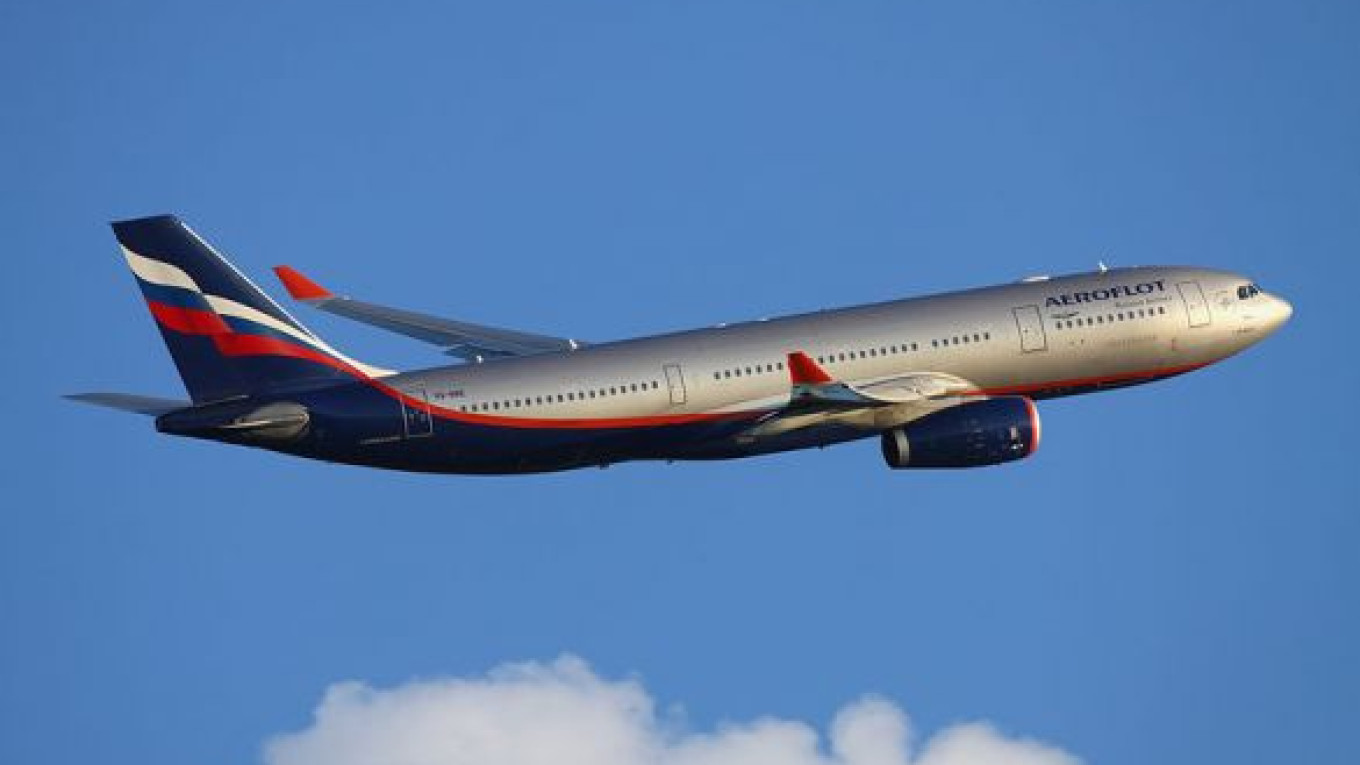Federal aviation officials have opened the skies above the city of Moscow for transit of aircraft, but experts said the altitude threshold is too high, adding fuel costs and travel time to carriers' overhead.
A decree allowing planes to fly over Moscow officially came to into force late last week, according to the Transportation Ministry's official site.
The sky above the capital has been closed for years to both Russian and foreign civilian aircraft due to reasons of national security. Under a U.S.-Russian treaty, Moscow is protected by an anti-ballistic missile shield.
Until now only emergency services planes were allowed to use the airspace above the city.
The recent move to allow commercial overflights is likely to improve airport capacity, but not necessarily the environment.
However, the new rules mandate that planes fly at an altitude of at least 8,100 meters.
But pilots say they would be able to save time if the threshold would be lowered to 5,000 meters.
"There is no sense to make it higher, since landings and take-offs are carried out at a much lower altitude," Vnukovo airport's chief navigator Ivan Maryasov told Vesti television Thursday.
Not all professional pilots have welcomed the new rules. "On a global scale, the territory of Moscow is not that big. That move doesn't solve any problems. We need to open new air corridors and build new airports," Sergey Knyshyov, an Aeroflot pilot and a pilot union member, said Sunday.
Federal aviation authorities said earlier that they intend to lower altitude to 3,000 meters for planes on an approach and 1,500 meters for planes that have just taken off — a move that could increase throughput of the capital's airports up to 30 percent.
Aviation experts said that while three of Moscow's airports have six takeoff runways— unlike five at London's four airports — they are used much less effectively. Last year, Moscow airports saw only 750 thousand takeoffs and landings, as compared to 1.3 million in London.
The plan to further lower the allowed altitude for planes is meeting opposition by city authorities due to ecological reasons, Vedomosti reported in April.
But Anna Kurbatova, deputy head of the Moscow city ecological institute, said last week that even a 1,500 meter altitude threshold would not cause serious ecological damage, since this height is considered above the environmental "safety zone."
She said also that aircraft would be barely audible.
"There is such a high level of noise pollution in Moscow that we would not notice a flying plane. For such a major city it will be like the sound of a mosquito," Kurbatova said, RIA-Novosti reported last week.
Air pollution is not expected to increase either. According to statistics from the International Civil Aviation Organization, aircraft are responsible for only 12 percent of emissions, while 74 percent comes from vehicular transport.
Aviation industry experts said the move to open the city's skies is a follow through on the reduction of Cold War era rules.
Only in 2010 did federal aviation officials allow pilots of private planes to fly spontaneously, informing aviation controllers about of their flight just prior to take off.
Previously, private pilots had to send a request for permission for an air corridor three days before the flight.
Contact the author at a.bratersky@imedia.ru
Related articles:
A Message from The Moscow Times:
Dear readers,
We are facing unprecedented challenges. Russia's Prosecutor General's Office has designated The Moscow Times as an "undesirable" organization, criminalizing our work and putting our staff at risk of prosecution. This follows our earlier unjust labeling as a "foreign agent."
These actions are direct attempts to silence independent journalism in Russia. The authorities claim our work "discredits the decisions of the Russian leadership." We see things differently: we strive to provide accurate, unbiased reporting on Russia.
We, the journalists of The Moscow Times, refuse to be silenced. But to continue our work, we need your help.
Your support, no matter how small, makes a world of difference. If you can, please support us monthly starting from just $2. It's quick to set up, and every contribution makes a significant impact.
By supporting The Moscow Times, you're defending open, independent journalism in the face of repression. Thank you for standing with us.
Remind me later.


